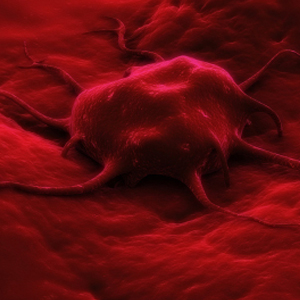
A new study found that 10% of women with a personal or family history of breast or other cancers had at least one gene mutation that would lead their doctors to recommend changes in their routine care, including increased cancer screening.
These women did not have BRCA1 or BRCA2 mutations that are strongly associated with hereditary breast and ovarian cancer. However, they had mutations in other genes known to be linked with cancer, the Stanford University School of Medicine team said.
Read: Breast cancer gene ups male risk
Multiple-gene panel
For the study, the researchers used what is called a multiple-gene panel – rather than whole genome sequencing – to sequence specific genes more quickly and cheaply. Whole genome sequencing is a laboratory process that involves "reading" all the characteristics of your DNA.
"Although whole-genome sequencing can clearly be useful under the right conditions, it may be premature to consider doing on everyone," study senior author Dr James Ford, director of Stanford's clinical cancer genetics programme, said in a university news release.
The researchers analysed blood samples collected from 198 women who were part of the clinical cancer genetics programme between 2002 and 2012. Of those women, 57 had BRCA1/BRCA2 mutations and 14 had mutations in 42 other genes associated with cancer.
Read: Childhood cancer breakthrough
Of those 14 women, 11 could be reached by telephone and 10 of them agreed to a follow-up appointment with a genetic counsellor and a cancer specialist to discuss their test results. One woman had died since giving her blood sample, but her family members also accepted counselling.
Six of the women were advised to have annual breast MRIs and six were told to have regular screenings for gastrointestinal cancers. Some of the women were given more than one recommendation, according to the study published in the Journal of Clinical Oncology.
More research needed
"Gene panels offer a middle ground between sequencing just a single gene like BRCA1 that we are certain is involved in disease risk, and sequencing every gene in the genome," said Ford, an associate professor of medicine and of genetics.
Read: Pollution can change your DNA
"It's a focused approach that should allow us to capture the most relevant information."
However, more research is needed before gene-panel screenings could become routine, the researchers said.
Read more:
One gene, two cancers?
Gene Mutations Up Risk for Cancer in Opposite Breast
Mutation may predict cancer risk




 Publications
Publications
 Partners
Partners















